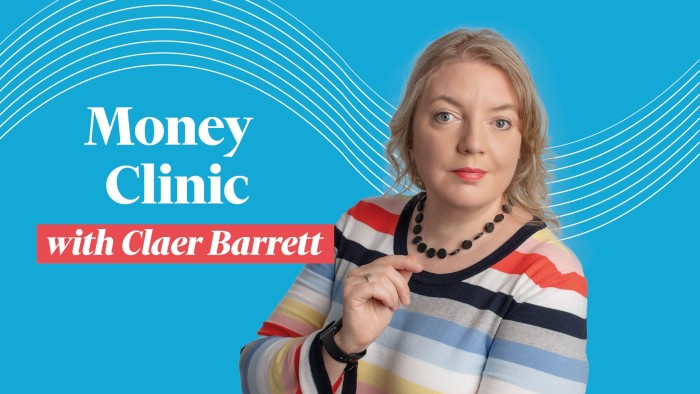Is day trading ever a winning investment strategy?


Roula Khalaf, Editor of the FT, selects her favourite stories in this weekly newsletter.
I did something I very rarely do last weekend. I watched a live football match on TV.
My husband and stepchildren are all football fanatics, but I’ve never been bitten by the bug. I usually go upstairs and read when matches are on, but since I invested in a £300 pair of wireless noise-cancelling headphones, we can now peacefully coexist on the same sofa.
So why the change of heart? The answer is my growing interest in trading platforms, their sponsorship deals with football clubs, and their expanding presence in sports-linked television advertising.
One of the biggest personal finance stories of the pandemic has been the huge rise of investing and day trading around the world, especially among young people.
In the UK, one in 10 investors today got started in the past year, according to research by consumer website Boring Money. It found the newcomers have an average age of about 30, and nearly two-thirds of them are men. Bored, sitting at home, and unable to spend money, it seems they are happy to take risks — and they’re a captive market for trading platforms.
On my Money Clinic podcast this week, I met 19-year-old Ross, who’s been trading throughout the pandemic, riding the GameStop wave.
FT podcast: Beyond GameStop: the day trader turned investor

Claer Barrett talks to listener Ross about his day trading. Download here
Spurred on by social media messaging boards and trading videos, his high point was making £230 in around five minutes trading shares in AMC, the US cinema operator. One of a group of so-called “meme stocks”, Ross later found he could lose money just as fast when a trade in Nasdaq-listed Genius Brands backfired, wiping out a quarter of his portfolio. Oof.
He reassured himself that in more normal times, he could just have easily blown the cash on a big night out. But he also wondered whether there was more to investing than placing high-risk bets on fast-moving shares.
I enjoyed discussing this with him on the podcast (Merryn Somerset Webb makes a guest appearance) and Ross has resolved to invest 90 per cent in a stocks and shares Isa for the long term and keep back 10 per cent for riskier trades.
For young people who fear Covid-19 has sucked the life out of their financial future, the potential to make a lot of money quickly with a risky gamble by trading shares, forex or crypto has a powerful allure.
Everyone knows someone who is boasting about having made a packet. There’s plenty of Fomo-inducing hype on social media (fear of missing out) including videos of young traders bragging about how much they’ve made. They rarely admit to losing money, unless this is followed by revealing an even bigger win.
There’s an expression, “doing a Yolo” (you only live once) and betting the majority of your account on a single trade.
Ross has never done it (“that really is just gambling”). Even so, hearing him describe the trades that got his heart pumping as he obsessively watched market movements for eight hours at a stretch shows how habit forming and addictive this high-stakes form of investing can be.
It’s no coincidence that both sports betting firms and trading apps are marketed at the selfsame group of consumers — young men.
Online gambling firms are far and away the biggest sponsors of UK Premier League football teams, accounting for 40 per cent of shirt sponsorship deals, but trading platforms are muscling in on this market.
Broker eToro is one of the biggest football club sponsors in Europe. Three Premier League teams — Newcastle, West Ham and Sheffield United — have signed “sleeve sponsorship” deals with online forex and CFD brokers (contracts for difference, a shorthand for spread betting).
Watch a live match on TV, as I did, and the commercial breaks are dominated by ads from gambling apps and trading platforms. Sometimes, I struggled to tell which was which.
One ad doing the rounds shows footage of footballers celebrating a winning goal is shot together with a young man in a shirt and tie pumping his fists after executing a winning trade on his smartphone.
In real life, he’d be more likely to be weeping like Gazza. The website for the same platform carries the statutory warning that 74 per cent of retail investor accounts lose money when trading CFDs.
Most young investors don’t have that much money to invest, which intensifies their interest in risky trades with the potential for quick profits. On the podcast, the experts were keen to stress that holding funds and shares for a matter of years, rather than a matter of minutes, could increase the chances of a more sustainable return.
Damien Fahy, a former financial adviser who set up the popular Money to the Masses website to demystify investing for young people, had a few lessons to pass on.
“When you’re young, increasing your contributions is the fastest way to increase the size of your portfolio,” he says. True, making a regular monthly investment into a diversified portfolio of funds within an Isa lacks the drama of trading GameStop. As markets turn choppy, there’s the benefit of pound cost averaging — buying more for a cheaper price.
As dull and sensible as this sounds, he says that if a 20-year old invested £125 per month, the historic long-term returns on equities suggest there’s a fair chance they could amass a £300,000 portfolio by the age of 65.
His assumptions are based on the Barclays Equity Gilt Study, which shows a long-running return of about 5.5 per cent per year on UK equities. Assuming investors made shrewd choices that increased their average annual return to 9 per cent (ambitious, but not totally outlandish) they could amass £1m over that 45-year timeframe.
Even if they didn’t want to invest time in researching funds and stocks, investors could boost the value of their pot by increasing the size of their monthly contributions as their earnings power rises. And the tax advantages of investing within a pension or stocks and shares Isa are good lessons to learn early on.
There’s no such thing as a risk-free investment, but playing a long-term game is likely to be a better bet for most.
Claer Barrett is the FT’s consumer editor, and a financial commentator on Eddie Mair’s LBC drive-time show, on weekdays between 4-7pm: claer.barrett@ft.com; Twitter @Claerb; Instagram @Claerb
Comments